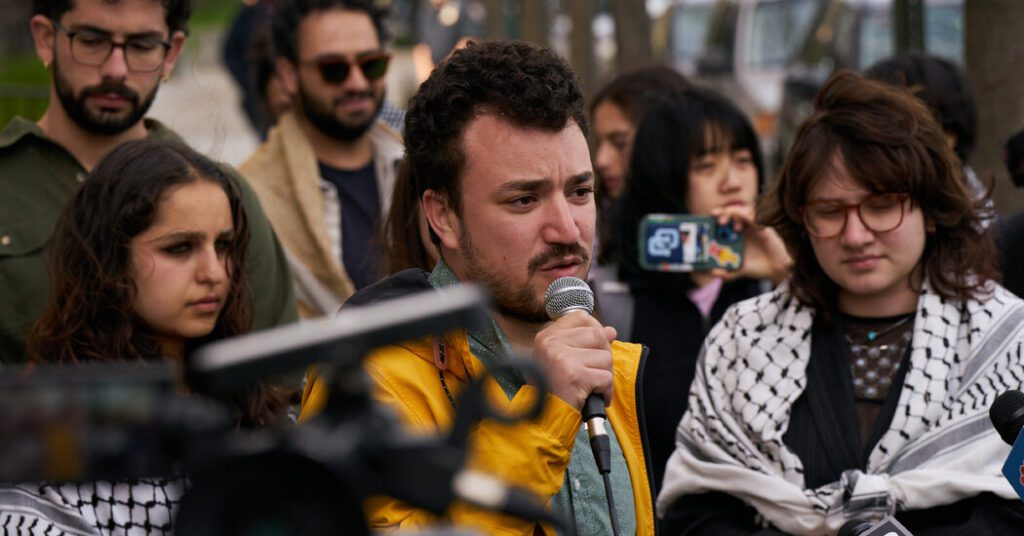Deportation Case of Pro-Palestinian Activist Mahmoud Khalil Faces Legal Battle
In a significant ruling on Friday, an immigration judge in Louisiana found grounds for the Donald Trump administration to proceed with the deportation of Mahmoud Khalil, a permanent resident and Columbia University graduate. This decision highlights the administration’s efforts to enforce stricter immigration policies in relation to individuals involved in pro-Palestinian activism on U.S. college campuses.
Legal Proceedings and Next Steps
The ruling by Judge Jamee E. Comans marks a crucial moment but is not the ultimate decision regarding Khalil’s potential deportation. His legal team has vowed to challenge the ruling, arguing that Khalil is being targeted for exercising his right to free speech, specifically due to his participation in demonstrations advocating for Palestinian rights.
The constitutional implications of this case will likely be examined more thoroughly in federal court in New Jersey, where Khalil’s attorneys have brought additional legal actions seeking his release. These developments indicate that while the Louisiana ruling is significant, it serves as a preliminary step in a longer legal battle.
Details of the Judge’s Findings
Judge Comans concluded that the evidence presented by the government was sufficient to establish Khalil’s removability under immigration law. The judge’s decision relied heavily on a memorandum from Secretary of State Marco Rubio, which claimed that Khalil’s presence in the U.S. is detrimental to American foreign policy efforts to combat antisemitism.
However, it is notable that the Department of Homeland Security did not present additional concrete evidence beyond Rubio’s assertion, raising questions about the robustness of the government’s case against Khalil.
Reactions and Implications
Following the ruling, Khalil expressed his disappointment at the proceedings, stating, “Clearly, what we witnessed today, neither of these principles were present today or in this whole process.” His remarks underscore concerns regarding the pursuit of justice and due process within the context of immigration hearings.
Legal experts suggest that the unique nature of the allegations—particularly those related to political expression—may influence the broader legal landscape surrounding immigration law and First Amendment rights. Khalil’s case could set a precedent for how similar cases are approached in the future.
Future Legal Challenges
Post-hearing, Khalil’s supporters expressed their dismay, while his legal team remains resolute. “This is not over, and our fight continues,” said Marc Van Der Hout, Khalil’s attorney. “If Mahmoud can be targeted in this way, this can happen to anyone over any issue the Trump administration dislikes.”
As the case progresses, Khalil’s legal team will enter the “relief stage,” where they will argue for his right to remain in the U.S. Should they lose this round, appeals can be made to an immigration board and potentially escalate to federal court.
In the New Jersey court, Judge Michael Farbiarz has issued an order prohibiting the government from removing Khalil from the country while legal proceedings continue, adding another layer of complexity to this already contentious case.


